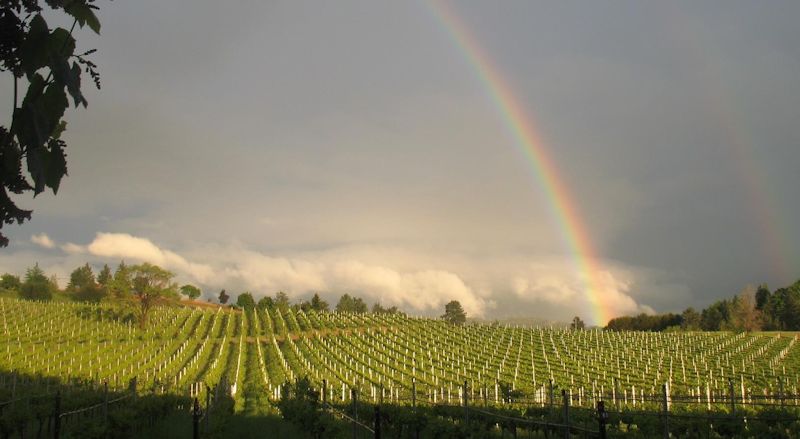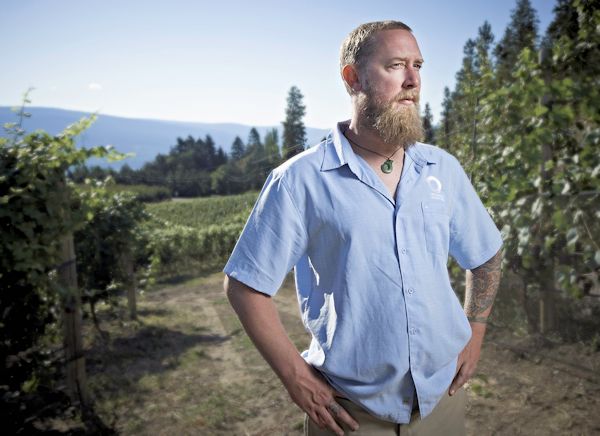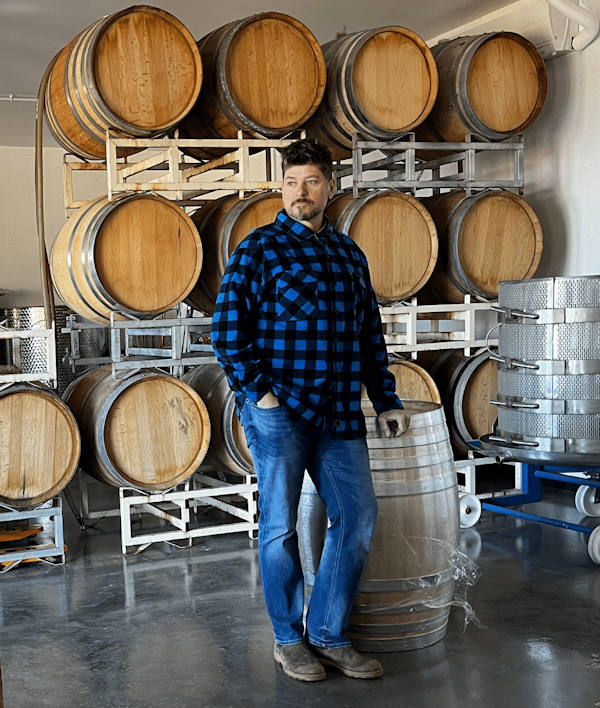Robert Bell's
Wines of Canada
Since 1992
Natural Wines

What is a natural wine? There is no official definition of a Natural wine. Perhaps it can be said by saying Natural wines are made by Nature not by the human intervention.
Natural Wines , often refered to as RAW WINE, Natural wine essentially is the process of making wine with as little or no manipulation at all. In its purest form, it is made solely from unaltered fermented grape juice and nothing more. Wines made without intervention by the winemaker.
Isabelle Legeron MW, founder of RAW wine fair, said that ‘strictly speaking, natural wine is pure, fermented grape juice’ with nothing added. The aim is to ‘bottle a drink that is alive [and] full of the naturally occurring microbiology that existed on the grapes and in the cellar too’.
Natural wine isn’t a new concept. In fact, it has been around for thousands of years. It is only recently that this phenomenon has become trendy and passionately followed by many restaurateurs and wine aficionados.
This movement is thought to have begun in rural France where a community of winemakers chose to farm organically. In the last few years, producers of natural wines have become more visible in other parts of the world and this movement has gone from a niche interest to a burgeoning trend.*1
When selecting the grapes for natural wines organic,biodynamic,are selected. Additionally, natural winemakers will harvest their grapes by hand rather than relying on machinery.
Unlike conventional winemakers, when it comes to fermentation, natural wine receives no additives at all. To start the fermentation process, natural winemakers rely on the ambient yeast already present on the grapes and in the winery. Some winemakers will use small amounts of sulfites, preservatives and stabilizers in order to protect the wine’s profile during bottling. Otherwise, man-made intervention is kept to a minimum. Being unfiltered, natural wine often displays a cloudy appearance and is considered a living organism – full of naturally occurring microbes.
Raw wine and naked wine are just some of the names associated with natural wine. It is best summed up as a no-fuss, small scale and traditional process of winemaking to produce a product that is fermented grape juice in its purest form. Natural wine could be seen as a bit of a rebellion, going back to a simpler way of doing things, where less is more.*2
Natural wines are generally known for their gamier, yeastier characteristics. They are often less fruity in their aroma profile than a typical wine, sometimes tasting more like a beer. *1
Since there is no legal definition for natural wine, a wine producer can label their wine with some liberty. Let’s explore what natural wine is all about before you decide to ditch your usual glass of vino in search of what might be perceived to be a healthier and better choice. Those looking for wines containing little sulphur may prefer a natural wine.
Natural wine is sometimes known for sour aromas and flavours similar to cider. Natural wine has a slower fermentation process, like cider. The longer a wine ferments, the more it’s exposed to oxygen, and this creates a cider smell and taste. There’s a greater range of flavour and aroma found in natural wines, depending on the winemaker and grapes.*2
Depending upon where the winery is located as many as 72 additives are legally permitted in winemaking. *3. None of these maybe added to a Natural wine. Or are there small exceptions. Low intervention allows for minimal amounts of sulfites. Your call is it still a Natural wine. Very simply, sulfites help preserve wine and slow chemical reactions, which cause a wine to go bad
Bella, is a British Columbia winery exclusively dedicated to sparkling wine, Bella produces natural sparkling wines of exceptional quality using the traditional and ancestral methods. They make a wine call "Trad-Nat".The goal of this wine is to make traditional method sparkling wine with nothing added.
Good Nature Winery in Ontario makes a natural Rose.
Traynor Family Vineyard claims all their wines are made with the Natural method. our natural wine styles are inspired by nature. We utilize ancient techniques in the winemaking with minimal intervention. The key to making a natural wine style is utilizing the freshest, cleanest fruit. They admit to some intervention. So what is your definition of a Natural wine.
Matt DumayneThe Okanagan Crush Pad is an Organic winery. All wines (even ones that are typically aged in oak barrels) are aged and fermented in concrete and amphorae tanks. This method contributes to the authentic taste of our wine; these tanks are neutral and therefore do not impact the taste of the grapes. If a red wine has an oaky taste, it will come from the grape itself (and not from an oak barrel).
Under the direction of winemaker Matt Dumayne, other natural winemaking protocols include:
- No use of commercial yeasts
- Combining organic grapes with the yeast that naturally occurs on their skins—this is known as native (or wild) fermentation
- No additional additives used including nutrients, tartaric, tannins, enzymes,Malolactic bacteria
- Minimal use of sulfur or filtering
- Amphorae are filled by hand, cap wetting by hand and no punch down.
For pure natural wines to be crafted from our vineyard, we knew that our vineyard had to be founded on biodynamic and organic farming practices. This required us to execute mindfulness during farming.
Anthony Buchanan.Anthony Buchanan a winemaker in British Columbia states the following:
For me, winemaking is a combination of art and science. I don’t follow a blueprint or a set recipe in the cellar because each year brings new challenges in the vineyard, and I believe the best wines are made when we work with what Mother Nature gives us.
I make our wines in small lot cuvées and use gentle techniques on the crush pad and in the cellar to produce wines with personality and a purity of flavour. We use indigenous yeast, minimal amounts of sulfites, no enzymes and no temperature control. Our wines are unfined, with little to no filtration.
Organic VS Natural
Both organic and natural wines share some common values, particularly around sustainability and environmental stewardship. Both have also become a much more common dinner party talking point.
Organic wine has been legally defined in both the vineyard and the cellar, albeit certification rules may vary and not everybody agrees with the boundaries. At government level, the Canada, US and EU differ over the addition of sulphites, for example.*4
Natural wines have so far defied all attempts to create a legal definition.
Isabelle Legeron said that, ‘broadly speaking, organic wine cellar regulations permit the use of additives, like yeast, winemaking aids, like fining agents, and processing, like sterile filtration and pasteurization, that would not be allowed at all in natural winemaking.’
Some winemaker say low-intervention addition of small amounts of sulfites still make it a Natural Wine others say "no" nothing may be added.
*1 thesmallwinemaker.ca
*2 trulyexperiences.com
*3 Food Network
* Chris Mercer - Decanter
|
Home | About | Sitemap | Place an Advertisement | Contact Us |©2022Robert A Bell

